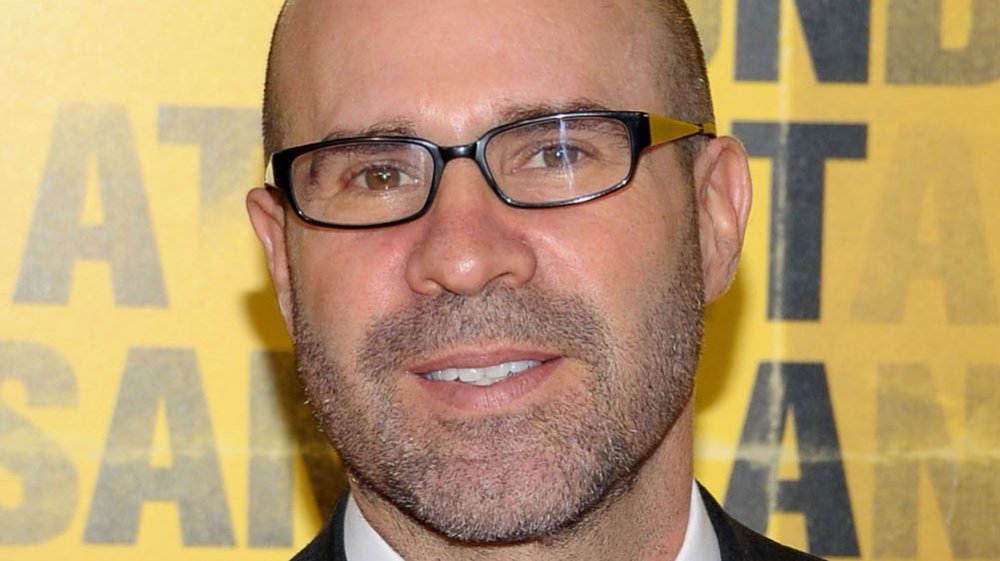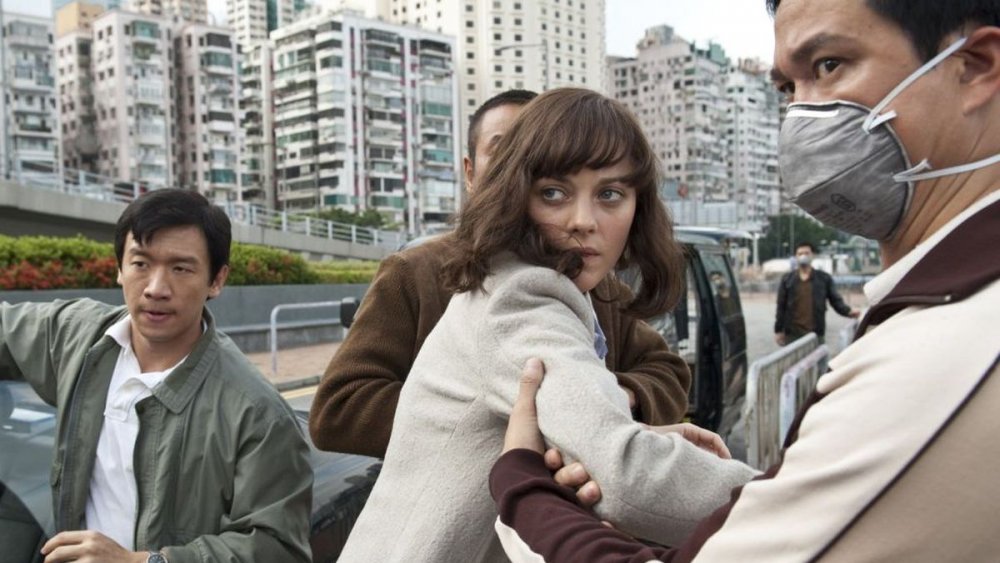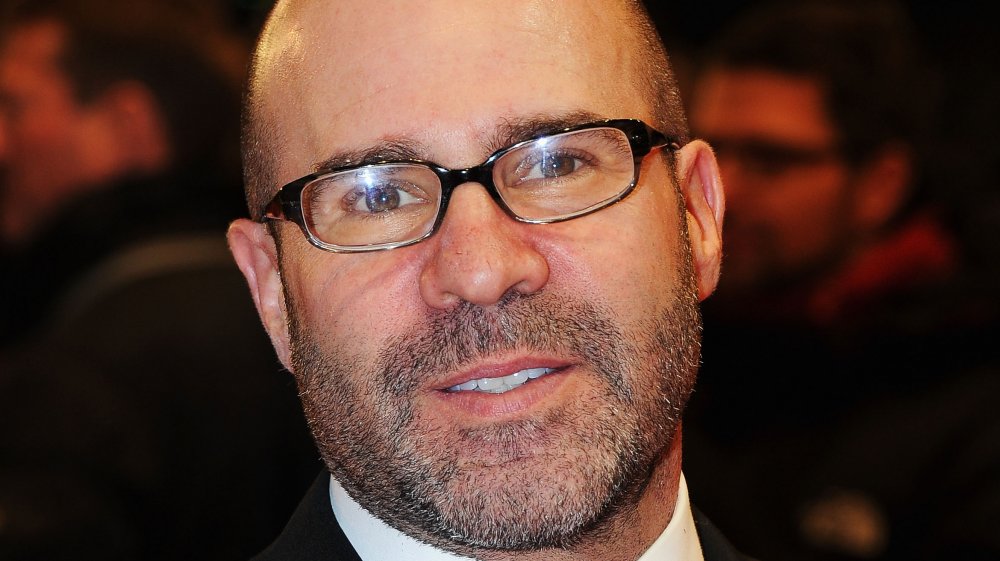Contagion Writer Reveals Grave Mistake We're Making With Coronavirus
Hollywood screenwriter Scott Z. Burns has opinions about how the U.S. is handling the coronavirus pandemic — and we would probably do well to listen to him.
This is because Burns is the scribe behind Contagion, the 2011 Steven Soderbergh-directed drama which offered a harrowingly matter-of-fact look at the way a virus can spread among an unprepared population. As part of his research for writing the film, Burns had conversations with a slew of experts in the field of virology, and spent time in the field with the men and women which made up our nation's pandemic response team — a team which was dissolved by the Trump administration in 2018. According to Burns, the gravest mistake being made by the U.S. in its response to the virus is not leaning heavily enough on just those kinds of experts to lead the effort (via Slate).
"It is incredible to me that we are not letting the really amazing public health people in this country lead the response — that we are finding out that we don't have enough test kits and have for some reason disbanded our pandemic-preparedness teams," Burns said. "I think the gravest mistake is not giving the space and the microphone and all of the support to the public health officials who can help guide us through this. We have really good people in this country. They need to get together and be allowed to speak to us clearly and not be filtered."
Burns has a terrifying analogy to bring the coronavirus response into perspective
The fact that the Unites States no longer has that pandemic-preparedness team in place as of 2018 is something that really sticks in the craw of Burns. The president's reasoning behind the disbanding was that there was no need for a bunch of virologists sitting around when there was no immediate threat of a pandemic — but the hole Burns poked in that notion is big enough to drive, well, a firetruck through.
"We were in a better place to deal with this when I was doing research on the movie," Burns said. "We had a Department of Homeland Security that had a pandemic-preparedness team in place. There were people who understood how public health works. I listened to a press conference that the president gave where he described himself as a businessman who didn't like it when people were just sitting around. Well, I wonder how he feels about the fire department. I live near a firehouse, and those people spend some time sitting around when there's no fire, but you can't build a fire department once your house is on fire."
Burns also bemoaned the delayed testing efforts in the U.S. "When you look at the amount of testing this country has done compared to other countries, that's the part that is scary to me," he said. The screenwriter isn't whistling Dixie, according to Ron Klain, who ran the response to the 2014-2015 Ebola virus outbreak. Klain recently took to Twitter to illustrate just how far behind we really are: "The Obama administration tested 1 million people for H1N1 in the first month after the first US diagnosed case," he tweeted. "The first US #coronavirus case was 50+ days ago. And we haven't even tested 10,000 people yet."
Burns sees reason to hope for a quick smackdown on the pandemic
Of course, the COVID-19 coronavirus is nowhere near as deadly as H1N1 (the "swine flu" which went pandemic in 2009), to say nothing of the virus from Contagion. But in offering his opinion of what average Americans can do to help quell the spread of the virus, Burns invokes his movie's tagline: "Nothing Spreads Like Fear."
"Right now, as our country is so divided, this is actually a moment to build bridges and to say, regardless of your differences with your neighbor, we can keep each other safe if we do the right things," he said. "And that means social distancing. That means washing your hands a lot. That means staying home if you are sick. Those are three really good first steps to take."
The scribe also offered up the fact that, despite the weakened federal apparatus to deal with an outbreak, the scientific community is hard at work finding solutions. "I have incredible confidence in the scientists that I know, and I have unbelievable faith in American ingenuity," he said. "Knowing that there are people in every sector right now — whether it is microbiology or tech or whatever — who are trying to come up with ideas that will keep us safe is very heartening. I am encouraged by the ability of scientists to sort these things out, and I am grateful that the mortality rate of this virus is not like the one in the movie. I do believe that we will sort this out."
As do we. For more information about the coronavirus and how you can do your part to slow it down, head over to the World Health Organization's website.


